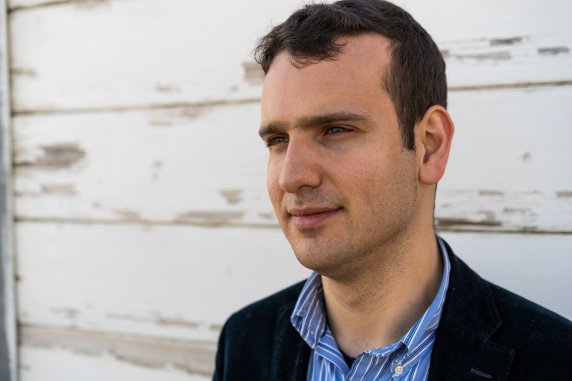Life is complicated when you don't have the tools you need.
Live Unlimited
Scroll
“Even without an official PKU diagnosis, my body showed the symptoms,” he recalls. “For example, when I ate ice cream, my body rejected it. When I left school and ate normal food I had behavioural problems; I felt sad and would complain more.”
Months passed and Nicolò was not getting better despite him and his mother travelling to multiple genetic medical experts from around Italy in search of answers. Throughout this time, Nicolò experienced severe muscular and speech deterioration and eventually was unable to walk or speak, despite attending rehab therapists. Eventually it was his therapist who recommended they try a paediatric medical centre that specialised in rare disease in Florence, who eventually diagnosed the PKU.
Part of the danger for late-diagnosed patients is that PKU doesn’t always show symptoms immediately, meaning children can go on eating harmful protein for years before they show symptoms. At which point, the damage to the brain can be too late.
“I had a very different experience from other late diagnosis patients,” he says. “As I’ve spoken with friends across Europe and other late-diagnosed patients have had lasting brain damage and troubles with walking. I was very lucky to have such a quick response from my body.”
Upon his diagnosis, Nicolò’s mother and grandparents reacted by starting the patient association AMMeC and connect PKU patients from all across Italy, Europe and even Canada. Thankfully this means Nicolò has become immersed in a supportive patient network which can be particularly important for travelling.
Travel for PKU patients often presents itself as an obstacle as there are limited available support services abroad and any trip requires a superhuman amount of preparation with dangerous consequences if something goes wrong, particularly as Nicolò only manages his PKU through diet: “I can’t forget anything, it is tough.”
Another aspect of Nicolò’s life that he doesn’t let hold him back is his studying.
As a law student at the University of Siena Nicolò is learning about the European law. He is hopeful that he can use his knowledge to create meaningful legislative change for the rare disease community.

“It’s interesting to combine my passion with law and my passion with social groups. I feel there needs to be a common law for people with genetic conditions.”
However, despite his determined following of the PKU diet he knows his PKU has affected his studies a bit – particularly if his PHE levels are too high or low.
“When the levels are perfect, I’m very focused and I complete my tasks well. But when the levels are low or high it’s very difficult to focus.”
Overall though, Nicolò maintains that his PKU is a part of him and that with good management and support from medical services, PKU patients can live their lives to the fullest.
It’s the one thing he doesn’t feel shy about in his life.
Being experienced in the challenges of PKU, Nicolò is hopeful that there will be an increased focus of rare, genetic conditions across Europe and ensuring everyone has equal access to support services.
“Even in Italy alone we have 20 different regions with varying situations. There are discomforts for patients in many countries of Europe.”
A key part of the challenge for PKU patients is the disconnect between child and adult services. Widely regarded as a childhood disease, many teenagers find themselves approaching adulthood without any understanding of what comes next – at a time most pivotal to them.
“PKU is not a childhood disease. The reason why it’s treated like a childhood disease is because they don’t consider adults at all. They do the blood spot once a year and throughout the rest of the year they know about their condition.”
Nicolò thinks adults need more social support services from their doctors and regular contact.
“If we can create the bonds with adults and they can see their doctors more than once a year you can create connections, which makes a huge difference. It’s very difficult to manage PKU alone.”